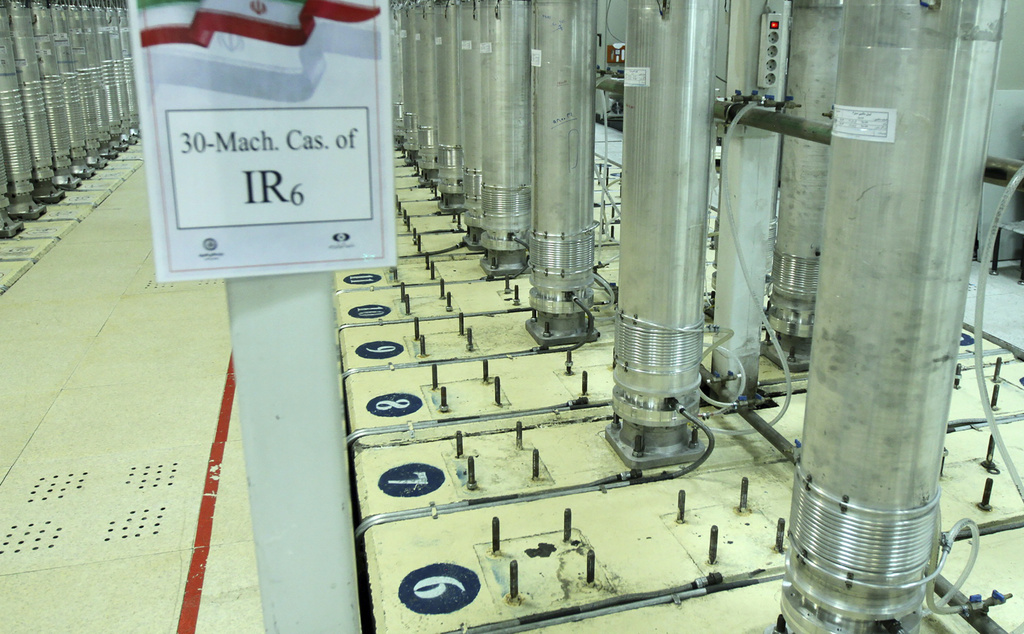President-elect Donald Trump is exploring options to prevent Iran from advancing its nuclear program, including potential military airstrikes on Iranian nuclear facilities, according to a report in the Wall Street Journal.
Sources within Trump’s transition team have indicated that discussions regarding military options have gained momentum. The talks are influenced by Iran’s weakened regional standing due to the ongoing conflict in Syria, the fall of Tehran’s ally President Bashar al-Assad, and Israel’s actions against Hezbollah and Hamas, two Iranian-backed proxy militias. Recent reports about Iran’s expanding nuclear activities have further accelerated these deliberations.
Trump has expressed concern about a potential Iranian nuclear breakout during his presidency. In conversations with Israeli Prime Minister Benjamin Netanyahu, Trump has reportedly sought ideas to prevent such an outcome while avoiding a direct military conflict that could escalate into a broader war.
According to experts, Iran possesses enough highly enriched uranium to potentially create four nuclear weapons. With its stockpile of 60% near-weapons-grade fissile material, Iran could produce weapons-grade nuclear fuel within days, though it might take several months to field an operational weapon.
In reaponse, Trump’s transition team is developing a “maximum pressure 2.0” strategy, combining economic sanctions with potential military measures. One proposed approach involves deploying additional U.S. forces and advanced weaponry to the Middle East and bolstering Israel’s military capabilities with bunker-busting bombs to target Iranian nuclear sites.
Another strategy involves leveraging the threat of military action to compel Tehran into diplomatic negotiations. This approach mirrors Trump’s earlier dealings with North Korea, although those efforts ultimately fell short of achieving lasting agreements.
A decision to pursue military action would represent a huhe shift in U.S. policy. The Obama administration sought to curb Iran’s nuclear ambitions through the 2015 Joint Comprehensive Plan of Action (JCPOA), which Trump abandoned during his first term. The Biden administration attempted to revive the agreement, but negotiations stalled, leaving many of Trump-era sanctions in place.
Israel has long considered striking Iran’s nuclear facilities but has held back, partly due to U.S. caution. In the past, American administrations discouraged unilateral Israeli action, urging diplomatic solutions instead.
Trump’s allies believe his return to office presents a rare chance to counter Iran’s nuclear program while the regime is politically and economically weakened. However, military action carries risks, including the potential for escalation and uncertainty over the success of targeting Iran’s deeply buried nuclear sites.
While Trump has emphasized his desire to avoid a new Middle Eastern war, he acknowledged in a recent interview the possibility of conflict with Iran, partly in response to alleged assassination plots against him.
For now, Trump’s transition team continues to assess options, with decisions likely to depend on the input of incoming cabinet members, intelligence updates, and coordination with allies like Israel.
(YWN World Headquarters – NYC)












3 Responses
That would be good for several reasons:
1. It means that Iranian people will blame the US rather than Israel for civilian deaths. If regime change is coming, Israel does want to do anything to make the Iranian people mad at us both to protect the local Jewish community and to set the basis for a future Israel-Iranian peace treaty.
2. It would send a message to Russia, China and North Korea that Trump is not predictable, but can be blood thirsty, so maybe they should rethink their plans for conquest.
bombing the nuclear facilities iso only a temporary solution, because they can be replaced, and there’s a very high likelihood that there are other, undeclared sites as well. the real answer is regime change, to get rid of the crazies who want to start a nuclear world war.
Change the damn regime there!!!! That’s a solution for everything in one go